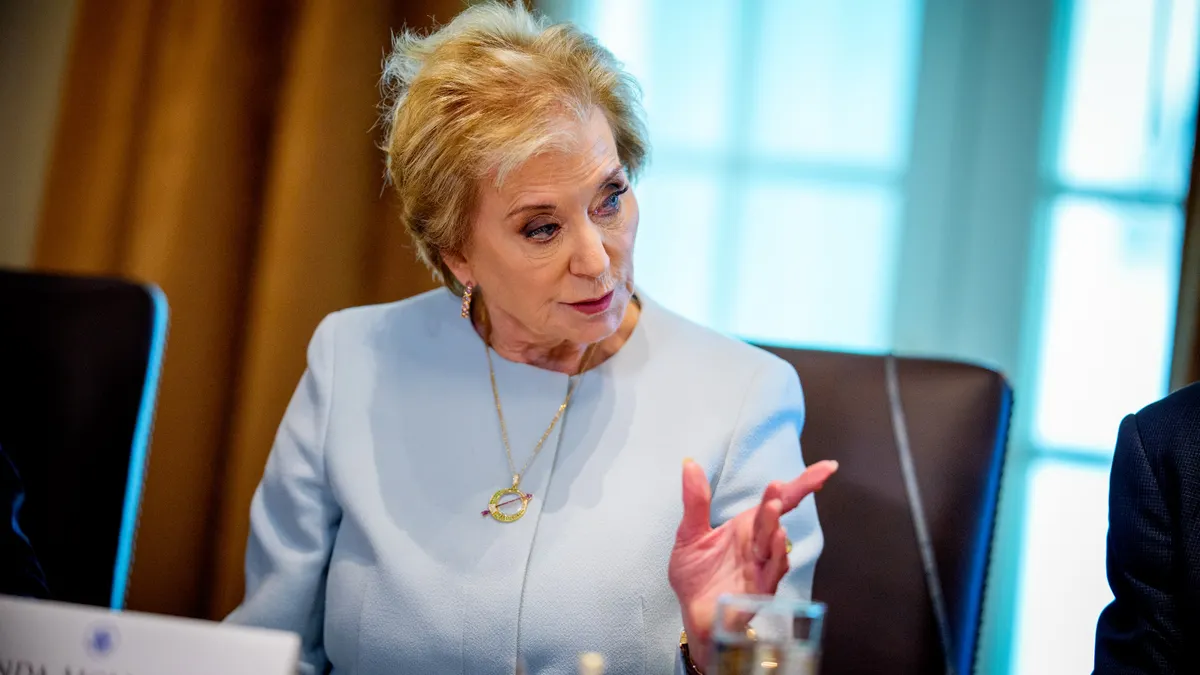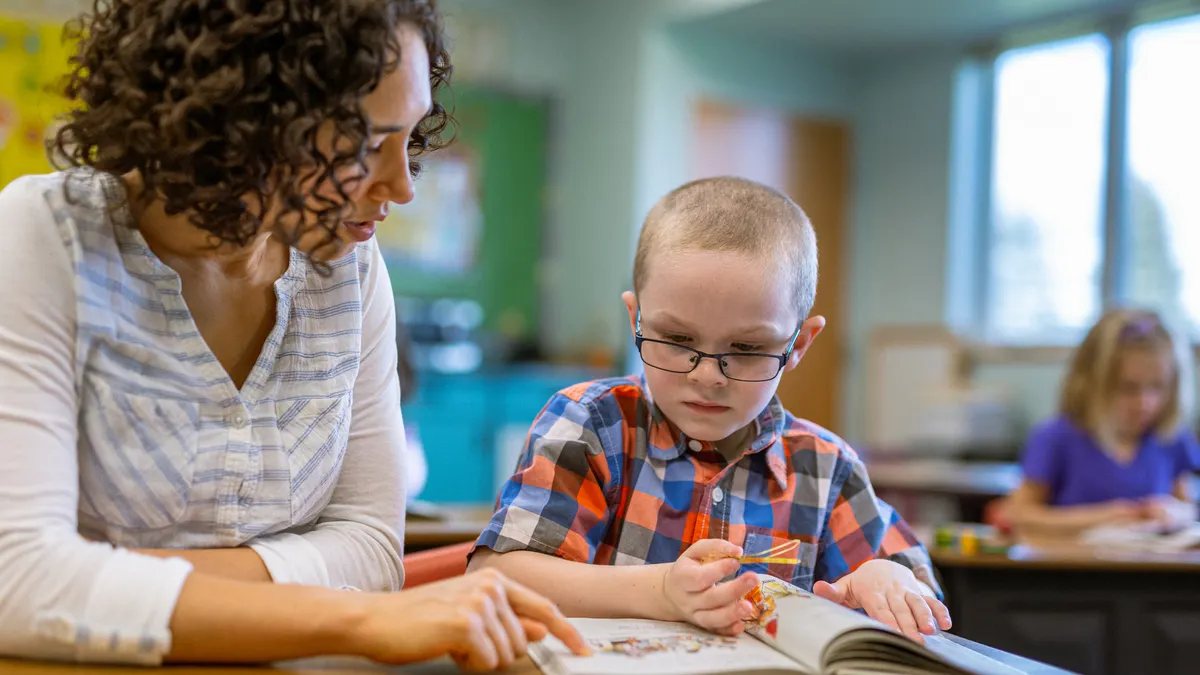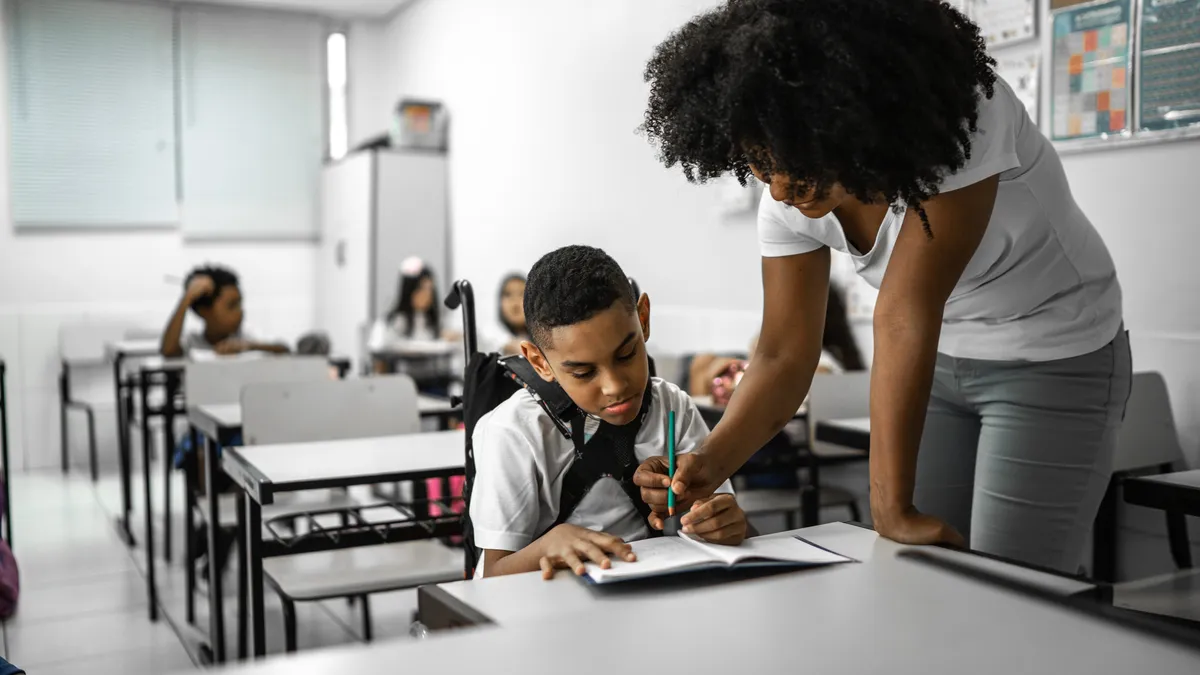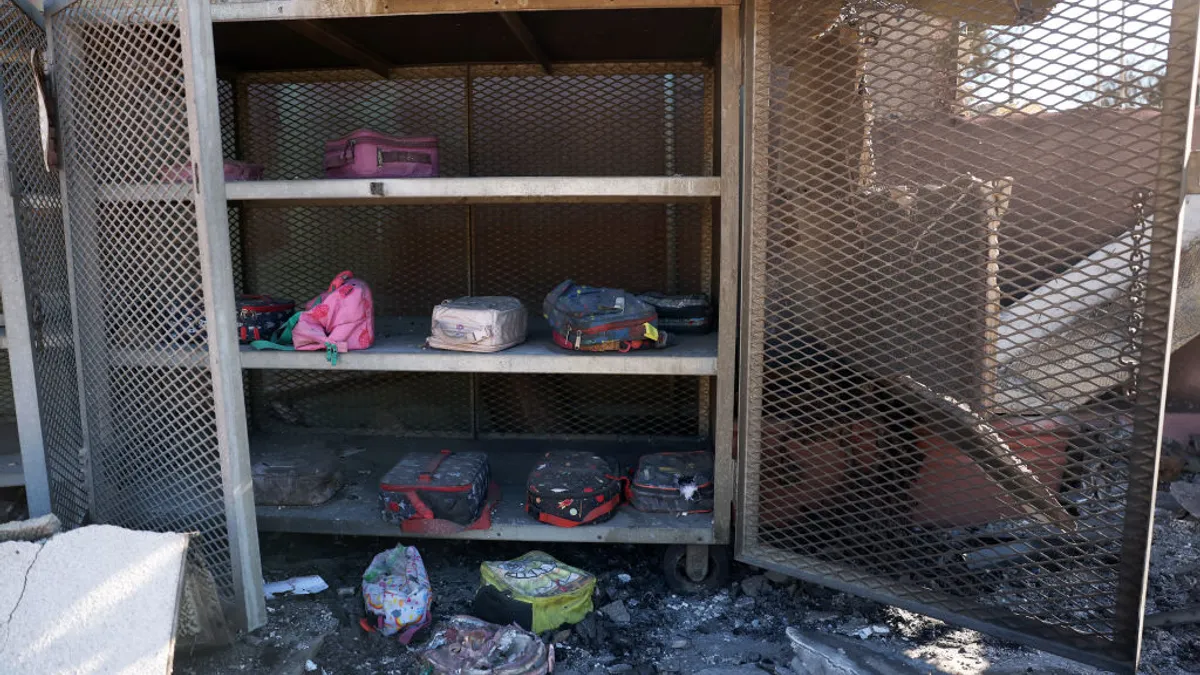U.S. Education Secretary Linda McMahon defended the Trump administration's proposed spending plan for fiscal year 2026 at a House hearing in Washington, D.C., on Wednesday, saying the budget will "shrink federal bureaucracy, save taxpayer money and empower states."
The funding proposal also prepares for the eventual closure of the U.S. Department of Education, McMahon told members of a House Appropriations subcommittee during her first congressional budget hearing as education secretary.
"It is the mission to shut down the bureaucracy of the Department of Education," said McMahon, who added several times during the 2 1/2 hour hearing that she would work with Congress to close the agency.
A top-line "skinny" budget proposal released May 2 calls for a $4.5 billion cut from the current K-12 spending plan, which calculates to a 15% reduction. It proposes maintaining spending for Title I, Part A and for the Individuals with Disabilities Education Act while consolidating or eliminating other programs' grants. Only money for charter schools is recommended for an increase.
McMahon said the spending reductions are realized by eliminating duplicative or ineffective programs, reducing regulatory compliance, and giving states more flexibility in how they dedicate those dollars.
But Democratic lawmakers pushed back, saying a retreat in federal education funding and oversight would lead to fewer resources and protections for public school students.
"Almost always when we talk about block granting programs, we make very, very substantial, substantive cuts in the availability of resources for the programs that are covered," said Rep. Steny Hoyer, D-Md.
McMahon said some state education leaders are calling for less federal interference. "I think we're going to see more money available in the states with less red tape," she said.
The Trump administration is expected to release a more detailed budget with spending and reduction justifications soon. FY 2026 starts on Oct. 1
Here are some other highlights from the budget hearing held by the House Appropriations Subcommittee for the Departments of Labor, Health and Human Services, Education, and Related Agencies.
"We are going to abide by the law"
Although the hearing was held to discuss the FY 2026 budget proposal, several lawmakers asked McMahon about the significant spending and workforce cuts taking place during the current fiscal year.
In the early months of the Trump administration, the Education Department has cut its workforce by half; canceled hundreds of millions of dollars in research, mental health and teacher preparation grants; and asked states to reapply for extensions for pre-approved COVID-19 emergency funds.
"The administration is recklessly and unlawfully freezing and stealing congressionally appropriated funds from agencies, programs and services across the government that serve the American people," said subcommittee Ranking Member Rosa DeLauro, D-Conn.
DeLauro also said she would challenge efforts to close the Education Department, adding it would not happen "on our watch."
McMahon said the agency is evaluating every single program "carefully" as it chooses to discontinue funds.
Later, when DeLauro asked if McMahon was going to follow the FY 2025 spending plan as approved by Congress, McMahon said, "We are going to abide by the law."
Expanding school choice
McMahon said one of President Donald Trump's priorities for education is "making sure that no student is imprisoned, if you will, in a failing school" and that he is "absolutely focused" on providing school choice for parents so "children have the right to an education that is best for them."
The secretary told lawmakers that the Education Department would support school choice through an increase in charter school funds and through federal block grants to states, and that state leaders would determine how best to use those funds.
Several Republican members praised the efforts to give parents more educational options for their children. Subcommittee Chair Robert Aderholt, R-Ala., said student achievement has not increased despite a rise in federal education spending.
"Students need reading, writing, math and critical thinking for everyday activities to succeed in their jobs and to make life's big decisions," Aderholt said. "Too many schools, encouraged and facilitated by federal funding, have let things like social justice advocacy, divisive issues crowd out the focus on teaching students and the core subjects."
However, several Democratic lawmakers voiced support for prioritizing the public education system.
"I am not opposed to parents using their own money to send their children to private school, but it is a strong public school education system that ensures that every child, no matter their background or ZIP code, has a fair shot at success," said Rep. Lois Frankel, D-Fla.
Focusing on literacy
McMahon said a core reason for students' lackluster academic performance is poor reading skills.
"We've lost the fundamental basics," McMahon said, such as the science of reading, which includes phonics, understanding and fluency in reading. "Because if we can get that right, I think we're going to see a great deal of improvement in our schools across our country, but we're not doing it."
McMahon spoke about the Mississippi "miracle," or how the state of Mississippi made significant gains in reading performance through science of reading approaches. Rep. Andy Harris, R-Md., said the state also didn't automatically promote 3rd graders to 4th grade who couldn't read.
"If you don't read by the end of the 3rd grade, forget it. Everything beyond there requires reading skill," Harris said.
But DeLauro said the elimination of grants to study literacy and other academic improvements and the planned block granting of some federal funds is "beyond distressing."
Rep. Madeleine Dean, D-Pa., also voiced frustration to McMahon.
"You think the federal Department of Education is not living up to what it ought to be doing, and you cite some statistics for students who are not doing as well as they ought to be," Dean said. "And yet, you decide that the answer to that is not to check on these investments and make sure students are achieving. It is to shut the whole doggone thing down. That doesn't make any sense.”







 Dive Awards
Dive Awards















